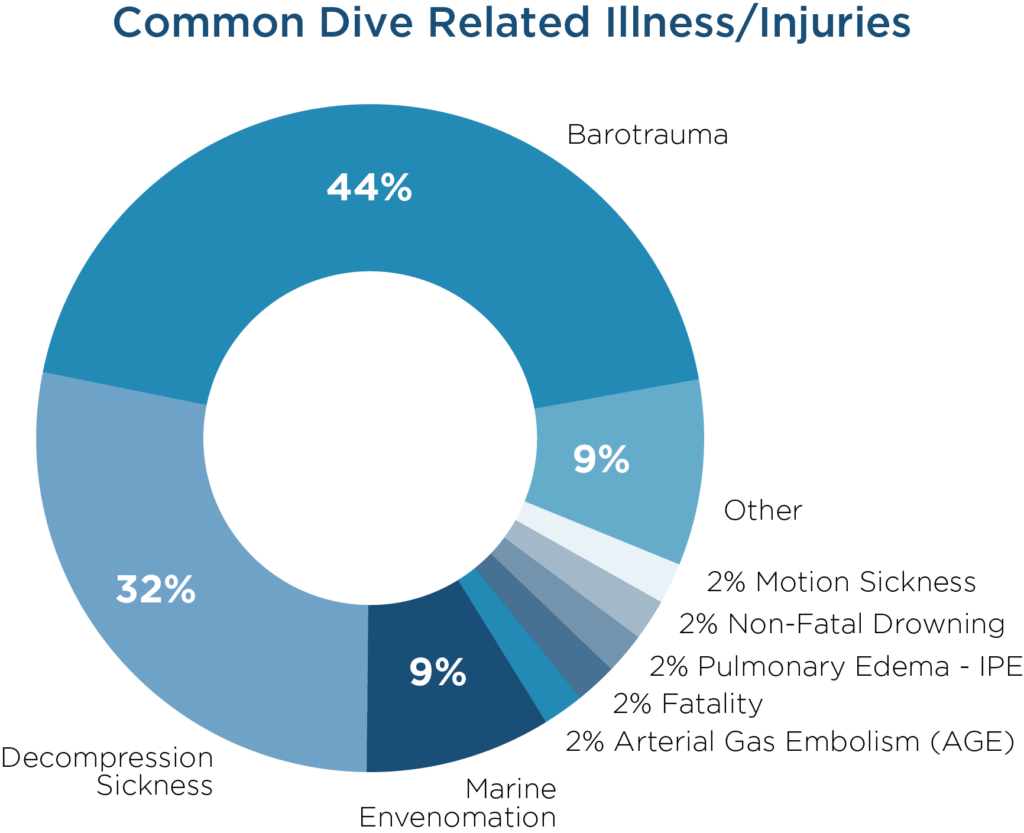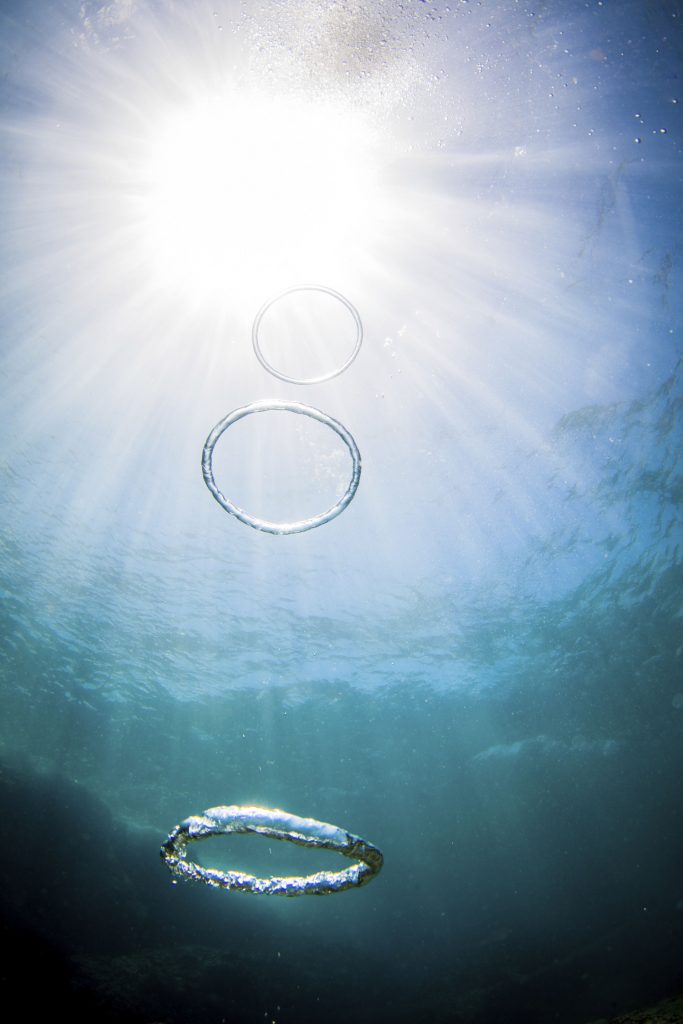Scuba diving accidents are rare, but they do happen. Knowing how to recognize and appropriately respond to diving injuries may benefit you or someone you care about.
The most common issues reported via email and Divers Alert Network’s Emergency Hotline are ear and sinus barotrauma, decompression sickness, and marine envenomation.

1. Ear and Sinus Barotrauma
- Ears feel “full” or like they have water in them
- Severe ear pain
- Dizziness, vertigo, nausea
- Muffled hearing, hearing loss, ringing in the ear
- Red or swollen external ear
- Blood or fluid oozing from ear
- Pain when swallowing
If you or another diver experience any of the following symptoms, stop diving and seek medical care – ideally from an ear nose and throat specialist. After ruling out an infection, the doctor may recommend nasal steroid sprays, acetaminophen, ibuprofen, a hot compress, or oral decongestants like pseudoephedrine.
Avoid ear barotrauma by equalizing early and often. Never force your descent and avoid using decongestants.
Learn more about ear barotrauma.
2. Decompression Sickness (aka The Bends)
Decompression sickness describes injuries resulting from a rapid decrease in surrounding pressure. Nitrogen absorbed by the body at depth comes out of solution and forms bubbles in body tissues and the bloodstream.

DCS occurs most often when a diver pushes depth and time limits, but it can occur without obvious cause. For example: flying in a commercial airplane that experiences a sudden loss of pressure or flying too soon after diving can cause DCS because the cabin pressure is less than the pressure at sea level. This doesn’t happen frequently, but it is a known cause.
Symptoms of DCS may include: skin rash, itching, joint pain, dizziness, fatigue, and bladder problems. These symptoms usually occur within one hour after surfacing, but can be delayed up to 24 hours.
Denial is arguably the worst “symptom” of DCS as the sooner DCS is treated, the more likely it is the diver will make a full recovery. Oxygen first aid is essential and may reduce symptoms; however, O2 is not a substitute for a full evaluation by a medical professional. Always contact DAN or a dive physician if signs of DCS are observed – even if they’ve diminished.
Read more about decompression sickness and treatment.
3. Marine Envenomation
Many marine animals use toxins for self-defense or for prey capture. Envenomation occurs when direct contact is made and the venom or toxin is injected by bite, puncture or sting.
Injuries typically occur as divers are entering or exiting the water, but they can also happen when a diver accidentally or deliberately attempts to handle an animal. Envenomations usually cause itching, burning, or other irritation. Rarely do life-threatening reactions occur.
Coral scrapes are perhaps the most common marine life-related injury experienced by divers and snorkelers. Cuts and scrapes from coral and barnacles can fester like a cat scratch – taking weeks or even months to heal without proper treatment. Spine punctures and stings are another common marine life injury.
How to treat:
- Carefully remove the spine or stinger (not recommended for stingray spines)
- Immerse the wound in non-scalding hot water: 110 – 113 F / 43.3 – 45 C (to tolerance)
DAN encourages divers of all levels to get first-aid training and be prepared to respond to diving injuries, including first aid for marine life injuries. However, if the injured diver is weak, vomiting, short of breath, or acts intoxicated, seek immediate medical care.
Most diving injuries are preventable. Breathe constantly, equalize regularly, and avoid contact with marine life, and ascend slowly. Help a fellow diver avoid injury by sharing this article and join DAN to support dive safety research and 24-7 emergency medical assistance for divers worldwide.
The information above is for informational purposes only and is in no way meant to take the place of skilled medical care. No article can give you the same degree of information as an experienced medical practitioner.